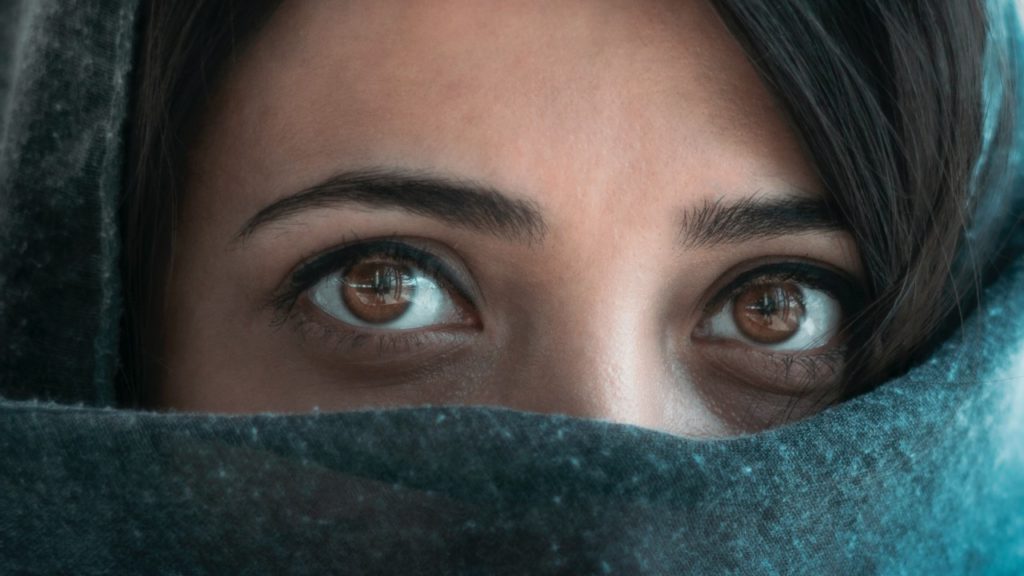I am about to say something controversial. I realize some of you might strongly disagree, but I feel it’s important to get this out in the open:
I’ve already started listening to Christmas music.
There. Now you know.
Christmas music has everything. Nostalgia, joy, remembering the reason for the season, celebration — it’s all there. My recent favorite has been “Matthew’s Begats” by Andrew Peterson. Designed as a segue between the Old and New Testament portions of his “Behold the Lamb of God” Christmas album, the song handles the transition in the same way the Bible does: with a list of names from Abraham to Jesus.
I just love it. It’s catchy, quirky (who writes a song about a genealogy?!), and reminds us that every verse in the Bible is there for a reason.
In Jesus’ genealogy found in Matthew, 42 men and five women are named. This seems very unfair until we remember that in ancient times, women were never included in genealogies. Yet Matthew lists five: Tamar, Rahab, Ruth, “the wife of Uriah” (Bathsheba), and Mary (Jesus’ mother).
Rahab, the prostitute
With the exception of Mary, these women didn’t have G-rated, family-friendly stories. Tamar’s and Bathsheba’s stories involved major moral failures (not entirely their faults), and Ruth had already experienced death and loss, plus was a foreigner — a big deal in ancient cultures. Rahab was both a foreigner and, as a prostitute, literally made her living off of moral compromise.
But that was just part of her story.
Before God struck down the walls of Jericho, Joshua sent in two spies, who tried to blend in by staying at the local house of prostitution. When soldiers came looking, Rahab hid the Israelites and lied for them. I doubt they had expected her help.
Imagine her whispering to the shocked spies (who were likely still shaking from their near-death experience): “I know that the LORD has given you the land,” she said. “The LORD your God, He is God in the heavens above and on the earth beneath.” Knowing her city would be conquered, Rahab asked for safety for herself and her family just as she had provided safety for the spies.
They promised.
When the walls of Jericho fell, Rahab and her family survived.
The chosen child of God
Unlike Tamar, Bathsheba and Ruth, Rahab shows up two more times after Matthew’s genealogy: once in Hebrews 11 (the “Hall of Faith”) and again in James.
We aren’t saved by our good works, James argued, but doesn’t true faith inevitably produce good works? To illustrate his point, James referred to the stories of two Old Testament people: first, Abraham, the most devout of Jewish patriarchs and representing the height of Jewish respect. Next, Rahab the prostitute.
What kind of religion points to a former pagan prostitute as a good example?
It would be easy to assume that the Bible would try to cover up Rahab’s past or downplay the sinful lifestyle she embraced before her rescue from the fall of Jericho. That’s how we tend to handle these kinds of stories now. But the Bible is very clear that Rahab was a prostitute in a city known for horrible, violent pagan worship.
Even when mentioned in the New Testament, Rahab is referred to as a prostitute, as if the writers were making a point: If a pagan prostitute can become one of God’s treasured children, who can’t?
Our stories aren’t about us
When Rahab left Jericho, she left her old life behind. No more would she be a prostitute. No more would she follow pagan worship rituals.
But the story of Rahab isn’t about human courage or even personal choices; it’s about the God who turns prostitutes into honored matriarchs and brings ashamed sinners into the family of the Messiah. Her inclusion in the genealogy of Jesus should be celebrated, and it is — not because of her own merit, but because of what God did in her life.
Can God rescue us? Can He change us, freeing us from the sinful patterns that hold us captive?
The story of Rahab is proof that He can.
Former lesbian and atheist professor Rosaria Butterfield describes her own conversion experience as a “train wreck.” God knocked down the walls in her heart, rescued her from eternal darkness, and adopted her as His own child. Had Rahab known what trains are she might have made the same comparison, because the transformation she underwent would likely have been just as drastic and intense.
God works the same transformation in each of us who have turned away from our former lives and toward Him. He does it for sinners every day, no matter how far from Him they are. “We may never know the treacherous journey people have taken to land in the pew next to us,” Rosaria has said.
But God knows. He has always known how lost we would be and the price it would take to bring us home. In ages past, He wrote the story of how He would actually come into our darkness and give us light.
Kinda reminds me of Christmas.
Copyright 2020 Lauren Dunn. All rights reserved.












